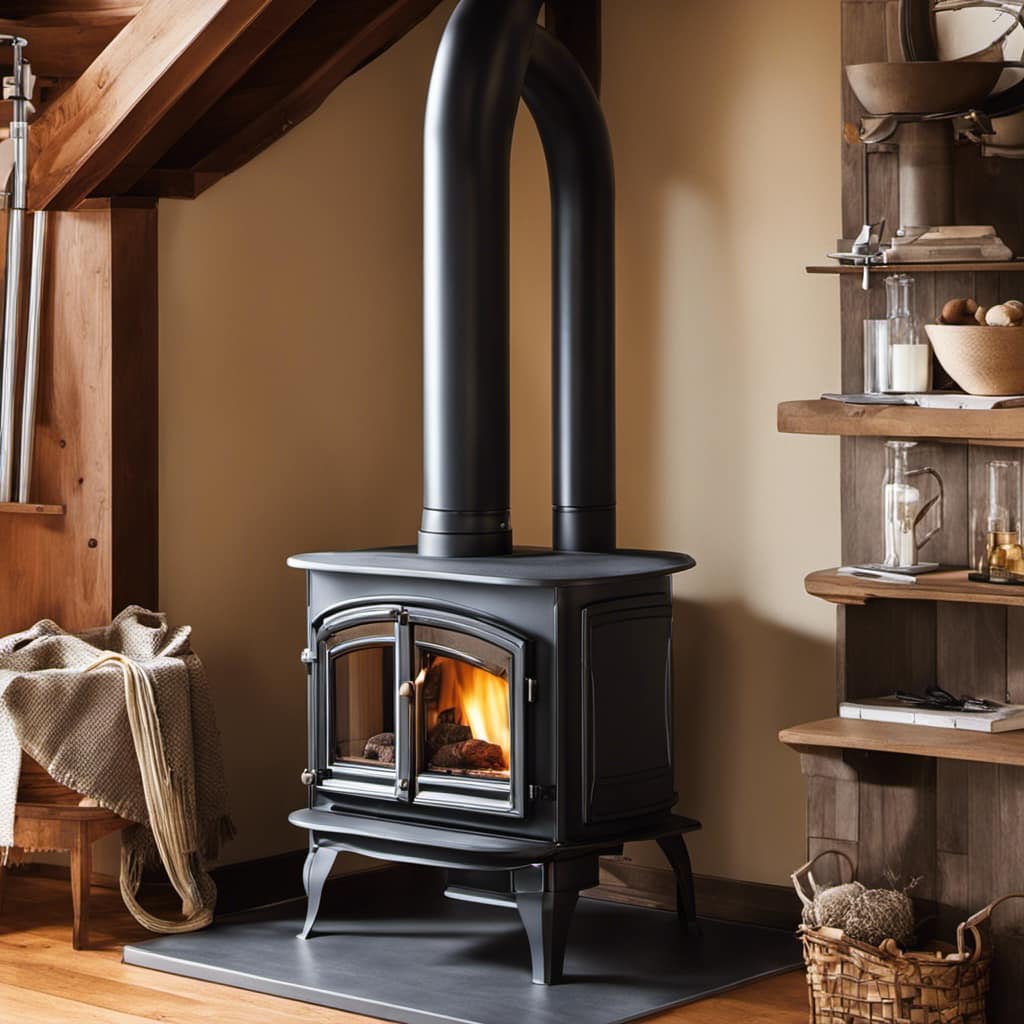If you’re fortunate enough to own a wood stove, you know the comforting atmosphere it creates during chilly nights. But one common headache for wood stove owners is the inevitable blackening of the glass. Fortunately, you don’t have to resign yourself to a murky view of your crackling flames – with a few simple techniques, you can keep your wood stove glass pristine.

Image: homesteady.com
Understanding the Causes of Blackening
Before we delve into the solutions, it’s crucial to understand why wood stove glass turns black. Two primary culprits play a role:
- Incomplete Combustion: When wood burns incompletely, it releases soot and creosote, which attach to the cool glass surface, resulting in a black residue.
- Ash Buildup: Over time, ash accumulates on the stove, especially around the glass. If this ash is not regularly cleaned, it can block the airflow around the glass, causing uneven heating and encouraging blackening.
Preventing Blackening: A Multi-Pronged Approach
To keep your wood stove glass gleaming, follow these comprehensive guidelines:
Ensure Proper Airflow
- Install Flue Damper: Control the airflow by installing a flue damper that allows you to regulate the amount of air entering the stove, promoting complete combustion.
- Maximize Air Intake: Keep the air intake damper open sufficiently to supply adequate oxygen for the burning process, preventing excessive soot production.

Image: bestsmallwoodstoves.com
Optimize Wood Selection and Burning Techniques
- Choose Dry, Seasoned Wood: Opt for seasoned wood with a moisture content below 20% as it burns cleaner and produces less soot.
- Start Fires Properly: Start your fires with small, dry kindling to establish a hot base before adding larger logs.
- Burn at High Temperatures: Aim for higher burn temperatures to minimize soot formation. Keep the stove grate clear to allow for good airflow.
Regular Cleaning and Maintenance
- Clean the Glass Regularly: Use a specialized wood stove glass cleaner (avoid abrasive cleaners) and a soft cloth to wipe down the glass after each use.
- Remove Ash Buildup: Regularly clean the ash pan and surrounding areas to prevent ash buildup from blocking airflow and promoting blackening.
- Season Your Stove: Heat your stove to a high temperature annually to burn off any remaining creosote or soot deposits, creating a protective glaze on the glass.
Other Tips and Troubleshooting
- Use a Glass Guard: Consider placing a removable glass guard in front of the stove glass to absorb soot and protect the glass from direct flame contact.
- Inspect Seals: Ensure the door gaskets and any other seals around the stove are in good condition to prevent air leaks that can disrupt proper combustion.
- Check Chimney: Regular inspections and cleaning of your chimney are essential to ensure adequate airflow and prevent excessive buildup.
How To Keep Wood Stove Glass From Turning Black
Conclusion
Maintaining a pristine wood stove glass doesn’t have to be a chore. By incorporating these tips into your stove maintenance routine, you can enjoy the mesmerizing flames without the unsightly blackening. Embrace the warmth and ambiance your wood stove brings, and savor the clear view of the crackling fire.